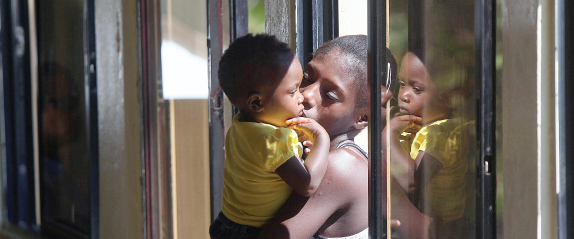
Race and immigration
The Dominican Republic strips citizenship from native-born children of unauthorized immigrants, rendering them stateless
The Dominican Republic to strip citizenship from native-born children of unauthorized immigrants, rendering them stateless
In a move that defies logic or morality, on Nov. 30 the government of the Dominican Republic put in motion the first steps of a constitutional ruling that will strip the citizenship of hundreds of thousands of native-born children of unauthorized immigrants as far back as 1929 and so will render them, in effect, stateless.
The Dominican Constitution has long granted citizenship to those born on its soil, with an exception for those deemed "in transit" — the children of diplomats stationed there temporarily, for example — but in 2004 it was amended to expand the definition of "in transit" to include the children of Haitian immigrants. The Inter-American Court of Human Rights denounced the practice as a way to discriminate against people who had been in the country their whole lives.
The September ruling upholding the constitutionality of that amendment, and the recent move toward beginning to implement it, has not only been decried by Haitians and Haitian-Americans, but also a number of people from within the Dominican-American community.
Social media activist and columnist Elianne Ramos started a Change.org petition asking Dominican President Danilo Medina to revoke the decision (the petition currently has approximately 1,000 signatories). A small "We are all Dominican" march in New York City brought Haitian and Dominican-Americans together to protest the ruling in mid-November, and a virtual march at about the same time made the issue visible to an estimated 8,000 more.
And on Thursday, Dec. 5 the Center for the Humanities in New York City held a forum titled "(Un)Making a Dominican: Contextualizing the Ruling that Denationalizes Dominicans of Haitian Descent" with presenters from various universities, legal and immigrant/refugee advocacy groups.
But the number of protesters and protests have been small and have had prompted less media attention than expected.
Dominican-American authors Junot Diaz and Julia Alvarez (along with Haitian-American author Edwidge Dandicat and journalist-author Mark Kurlansky) did pen an opinion piece Nov. 10 for the L.A. Times in which they stated the ruling and its implementation "leaves no doubt that the nation has not left its history of abuse and racism behind."
The writers make reference to racism in the treatment of Haitian immigrants throughout the Dominican Republic's history, including the 1937 massacre of 20,000 Haitians by dictator Rafael Trujillo in order to "cleanse" the border between the two countries that share the island of Hispaniola.
In the Dominican Republic itself, the ruling has pitted members of the Catholic Church against each other. According to Catholic News Service, the Dominican Conference of Religious released this statement: "As the religious Dominicans, we cannot remain indifferent to the call of God in the pain and the exclusion of hundreds of thousands of Dominicans that are being affected by this sentence."
The ruling, they said, "is violating civil rights."

But Cardinal Nicolas Lopez Rodriguez of Santo Domingo has rebuked the 43 signatories and avers that the Constitution must be upheld. And, like President Medina, believes everyone on the outside should just mind their own business.
For Latinos watching from the U.S., the Dominican constitutional change eerily echoes a change suggested by Pa. State Representative Daryl Metcalfe. The Republican from Butler County has long been vocal about repealing the right of citizenship for children born to undocumented immigrants in the United States — a right protected by the 14th Amendment — and has gone as far as drafting a proposed bill as part of a immigration-centered omnibus bill.
There is a cautionary tale evolving in front of our eyes — of fear, of xenophobia, of racism made law— and if we're focusing on the Dominican Republic at the moment, the story doesn't begin or end on the island.
How can we — U.S. Latinos — demand that Anglos in the United States treat our DREAMers as human beings invested with dignity, rights, shared history and love for the country in which they've come of age, and then stay silent as the Dominican Republic strips the children of their immigrants of exactly that?
People from every reach of the Latino community in Philadelphia need to flood newspapers here and in the Dominican Republic with the unwavering statement that we will not — here or there — stand for racism disguised as broken immigration law or immoral constitutional amendment.










LEAVE A COMMENT:
Join the discussion! Leave a comment.